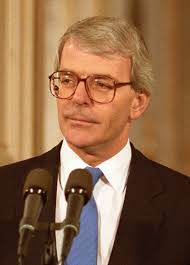Examining John Major’s Impact on British Politics

Introduction
John Major, who served as the Prime Minister of the United Kingdom from 1990 to 1997, remains a significant figure in British politics. His tenure came during a time of considerable change, both domestically and internationally. Today, Major’s policies and actions continue to influence discussions around governance, economic strategy, and the evolving landscape of the UK’s position on the world stage.
Major’s Political Career
Before his premiership, John Major held various cabinet positions, including Chancellor of the Exchequer, where he played a crucial role in UK’s economic policy during the late 1980s. Major succeeded Margaret Thatcher in 1990, inheriting a party divided over Europe, and took on the challenge of uniting the Conservative Party amid growing tensions.
Major’s Key Policies
His time in office was marked by significant events, including the Gulf War, the signing of the Maastricht Treaty in 1991, which aimed to further European integration, and the introduction of the Citizens Charter. The Citizens Charter was designed to improve public services and hold them accountable to the citizens they serve.
However, Major’s government also faced several challenges, such as economic downturns and rising unemployment, particularly after the 1992 recession. These issues resulted in significant electoral losses for the Conservatives in the mid-1990s, culminating in Major’s defeat to Labour in 1997.
After Politics and Contemporary Reflections
Since leaving office, John Major has remained active in public life, often focusing on issues of social justice, education, and public health. His commentary on Brexit has also made headlines, where he has called for unity and caution over the nation’s exit from the EU. Major’s approach to politics has been characterised by a moderate perspective, advocating for inclusive dialogue and bipartisanship.
Conclusion
John Major’s legacy in British politics is multifaceted, marked by both achievements and challenges during his time as Prime Minister. As current political figures continue to navigate similar issues of division and economic uncertainty, Major’s experiences and insights offer valuable lessons. His commitment to public service remains relevant, serving as a reminder of the importance of leadership that prioritises unity and welfare over political discord.









